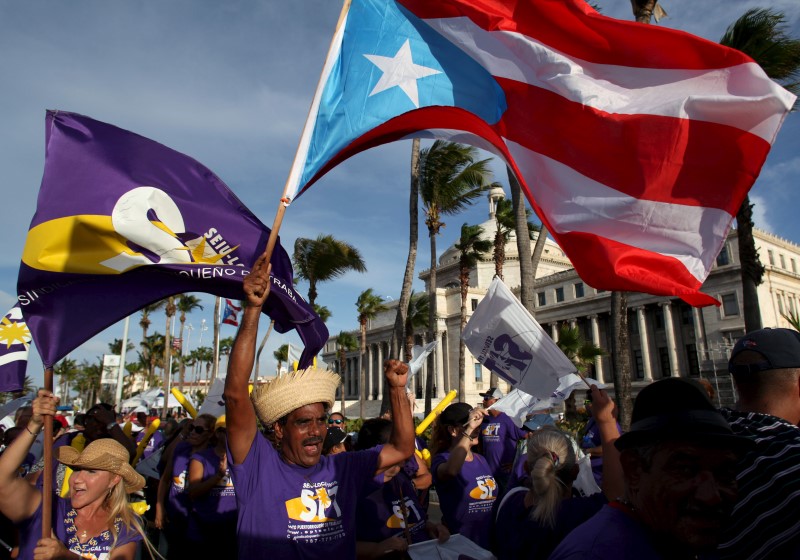By Nick Brown
ORLANDO (Reuters) - Puerto Rican and U.S. leaders will meet in Florida on Wednesday to discuss ways to promote Puerto Rico's interests in Washington as the island weathers a major debt crisis.
Civic leaders in the U.S. with ties to Puerto Rico, as well as U.S. legislators like Florida Representative Alan Grayson, will convene in Orlando for panel talks and a "political strategy discussion" to develop an "action plan to address the crisis," according to the event's agenda.
The island, which owes creditors $72 billion, has proposed a plan to restructure debt and impose austerity measures, but it faces political hurdles, including the need for legislative action from the U.S. government.
Puerto Rico is not high on the priority list of a Republican-dominated Congress, and while there have been some efforts on Capitol Hill to address the issue, they have struggled to generate momentum.
If Wednesday's meeting is outwardly designed to foster that momentum, it may also serve as a key chance for politicians to score points with Hispanic voters in Florida, a swing state that is home to 987,663 Puerto Ricans, according to 2013 Census data. Grayson, a Democrat, represents the district that includes Orlando, and is running for Senate in 2016.
Melissa Mark-Viverito, the Puerto Rican-born New York City Council speaker, will run Wednesday's political strategy session. As one of the most powerful politicians in a state that is home to more than a million Puerto Ricans, Mark-Viverito has made the island's fate a priority.
Organized in part by Puerto Rico's federal affairs office in Florida, the conference figures to attract leaders largely allied with the island's governor, Alejandro Garcia Padilla, a Democrat and member of the party opposed to making Puerto Rico a U.S. state.
Along with Grayson and Mark-Viverito, the key U.S. politicians attending the conference - Reps. Jose Serrano, Luis Gutierrez and Nydia Velazquez - are all Democrats.

Panels will address various topics including human rights, climate change and healthcare. The latter is a particularly passionate issue in Puerto Rico, which, as a U.S. commonwealth, receives less federal Medicaid funding than U.S. states.